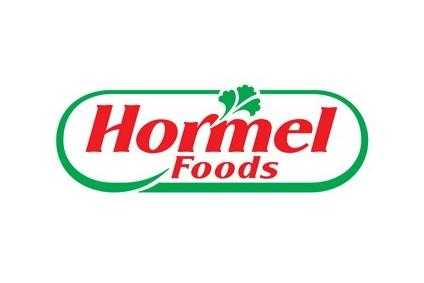
Hormel Foods has set a target for its EBIT margin by 2020, with the US group behind brands from Spam to Muscle Milk aiming to be “in the top quartile” of its peer group – and sees M&A as a way of hitting the goal.
Jim Sheehan, Hormel’s CFO, said yesterday (22 November) the companies in the “top-quartile range” were currently generating an EBIT margin of 15-19%. Hormel’s EBIT margin stands at “about 14%”.

Discover B2B Marketing That Performs
Combine business intelligence and editorial excellence to reach engaged professionals across 36 leading media platforms.
“We’re currently in the third quartile of that group so, to reach that goal, we not only need to improve our own margins but we need to outperform our peers,” Sheehan said on a conference call with analysts to discuss Hormel’s fourth-quarter and full-year results.
Sheehan said the 2020 margin target was “consistent with our long-term growth goals of 5% top line and 10% bottom line”.
Hormel president and CEO Jim Snee said the “continued growth of value-added products” and acquisitions would part of the company’s strategy to hit the target.
“The moving of the value-added product up what we’ve referred to as the value ladder, taking them to higher levels of margins. Clearly, acquisitions are a part of our strategy,” Snee said.

US Tariffs are shifting - will you react or anticipate?
Don’t let policy changes catch you off guard. Stay proactive with real-time data and expert analysis.
By GlobalDataHormel reports its results across five divisions – grocery products, refrigerated foods, Jennie-O Turkey Store, speciality foods and international.
Asked if Hormel would give more details on how, division by division, the company would look to meet the margin goal, Snee pointed to the “long-term growth algorithms” for each of the business units.
“We talk about grocery products at [sales growth of] three [per cent] and [operating profit growth of] six and that’s going to be a mix of organic growth and acquisitions. We’re going to see the same thing across the other business units – refrigerated foods, Jennie-O Turkey Store, specialty foods, [with growth] of five and ten – and then we’ll need international to return to their ten and 15 long-term growth algorithm. If we’re able to deliver that – and we know we will, we’ll do it through a balance of organic growth – that’s the logical progression for how we get there,” Snee said.
The Hormel CEO, who was promoted to the position this autumn from after a year as COO, said the company had a “robust and full pipeline” of companies the business could acquire.
“We’re looking for opportunities that are accretive to our overall portfolio. Our number one and number two in the categories in which they compete. We want to make sure that we can bring value to the business, so I mean we start there but we made sure that they are aligned around our strategic growth areas of becoming more global, more multi-cultural, items or brands that are more on-the-go and then of course this area of healthy and holistic. It’s all about timing and getting some of them across the finish line but I would tell you that the pipeline is robust and full,” Snee said.
On Monday, Hormel announced the sale of a clutch of meat assets to US processor Smithfield Foods. The disposal of Hormel’s Clougherty Packing unit included the Farmer John and Saag’s Specialty Meats brands, as well as two processing facilities and three farms.
“While the businesses performed well, they no longer met our strategic goals. Additionally, the divestiture allows for the integration of the pork processing facility at Farmer John, with the majority of live production operations which supply the facility and are currently owned by Smithfield. This divestiture is in the best interest of our shareholders and we continue to seek opportunities to utilize our cash towards investments aligned to our growth goals,” Snee told analysts.





